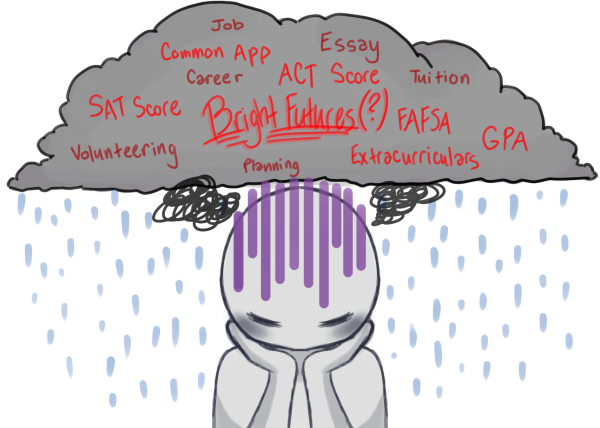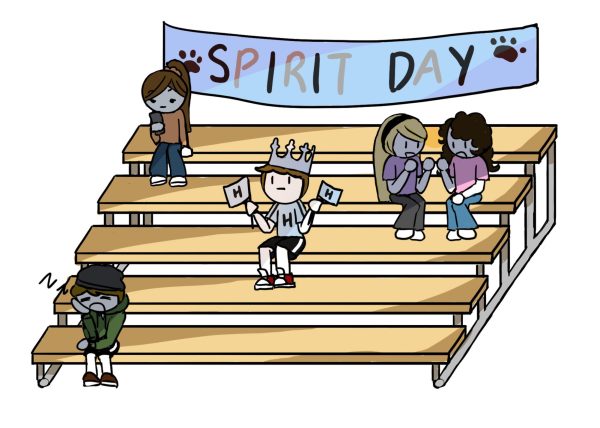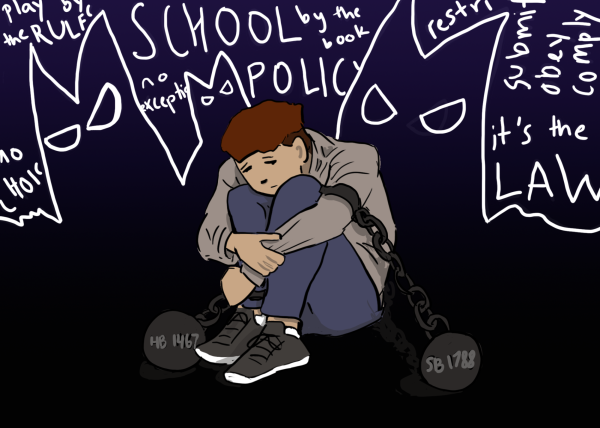Getting political on social media: do your research
photo by Areli Smith
Political misinformation has made itself at home on social media. Before reposting any shocking headlines or infographics, people must research and fact-check their information.
Tapping through Instagram stories, you notice a repost with a shocking headline: “Texas Schools Require Clear Bags To Prevent Students From Bringing In Books.” In a rage, your friend captioned his post “F America, we don’t have freedom anymore!” Seems like a serious problem, right?
Nope. The article was written by The Onion, a satire site.
As social media continues to become a more popular platform for political protest, misinformation is at an all-time high. Infographics, articles and pictures that look even slightly convincing tend to spread across platforms like wildfire. The problem is a complete lack of research and fact-checking, and it leads to untrue beliefs and unnecessary anger.
Of course, the headlines and posts that make our jaws drop are the ones we accept the quickest. According to a study by Nature, social media users were more likely to believe headlines that matched their political beliefs than those that were not. On top of that, users were more likely to share posts that were politically concordant, regardless of if they believed it was accurate.
One graphic that spread across Instagram was a banned book list. With all of the new education laws and textbook bans in Florida, it would make sense for a new ban to surface. While books from the list, like “To Kill a Mockingbird” and “Of Mice and Men,” have been the subject of bans across the country, other books, like “The Lord of the Rings” and the “Harry Potter” series, have not. An entire platform lost control for no good reason. A single Google search would have revealed that the list was not real.
If someone feels the need to advocate for a cause on their social media account, they should care enough to research it beforehand. Misinformation has a tendency to target and hurt specific groups of people; when people posted that monkeypox spreads only among gay people, the LGBTQ+ community was rightfully upset. Nobody should have to read lies about themselves.
Before you repost any debate-inducing information, do your research. To find out if a post is credible, look at where its information is from. Reliable news sites include the Associated Press and The Wall Street Journal—not The Onion. Additionally, if you see a picture with an outrageous caption, reverse search it before you share by pasting the image into Google. It will reveal the original source and context of the photo, either proving or disproving what social media made it out to be.
Beyond researching the publisher, using fact-checking sites like PolitiFact and Snopes can further verify whether information on social media is true. Social media platforms do a poor job of fact-checking—none of The Onion’s posts are flagged as satire, and only blatantly obvious jokes get penalized. These companies clear up misconceptions about current events and provide facts that are not tainted by opinions or dramatic wording.
The bottom line: social media users need to think before they post. Good fact-checking and media-consuming skills are not only useful for social media scrolling; they might come in handy when watching political ads for the next couple of months. Research information before spreading it, and realize that the angry, dramatic headlines are not always true.
Your donation will support the student journalists of Hagerty High School. Your contribution helps us publish six issues of the BluePrint and cover our annual website hosting costs. Thank you so much!











